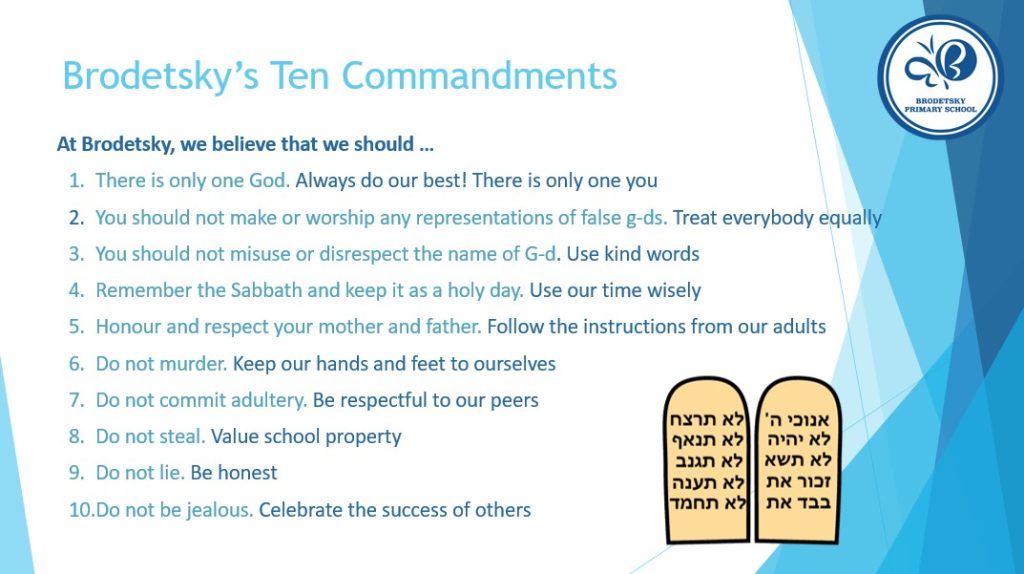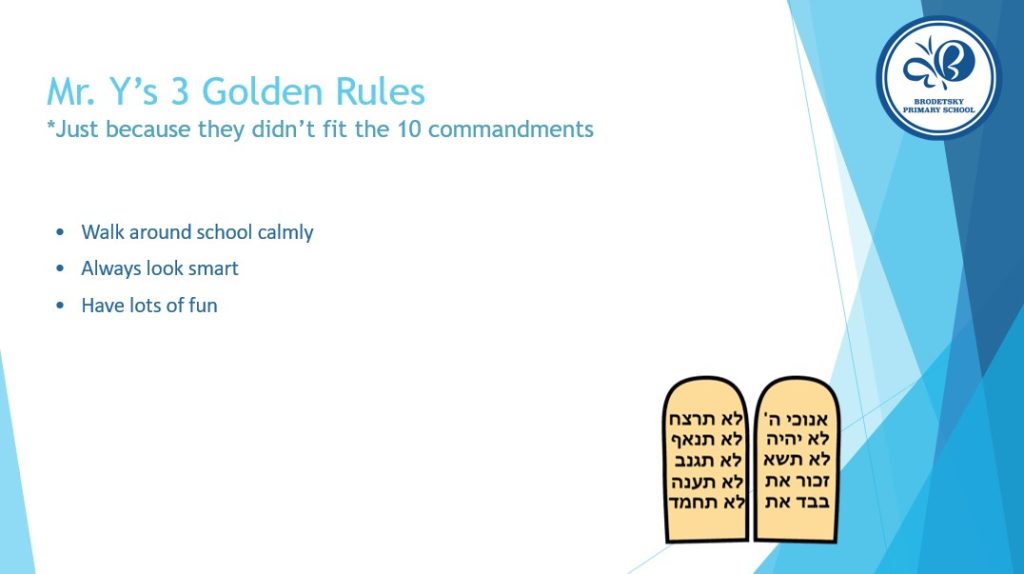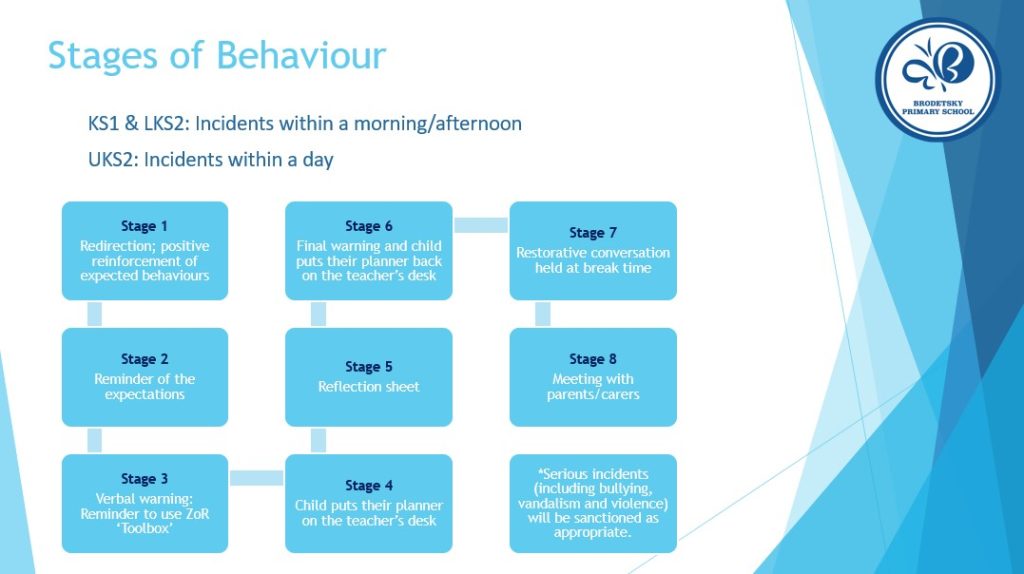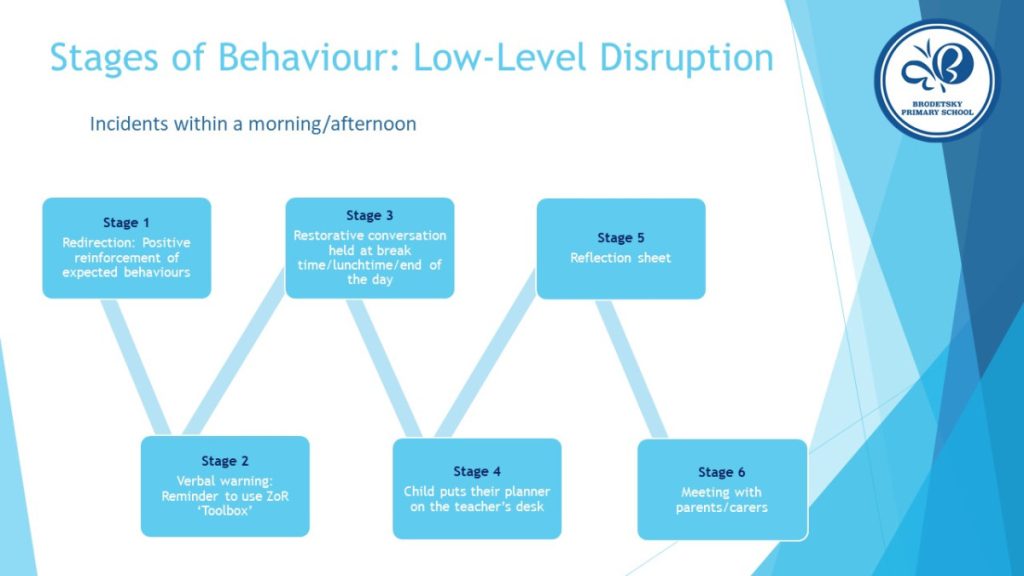Behaviour for Learning
We recognise behaviour as a form of communication and support all children in managing and self-regulating their learning behaviours through the use of Zones of Regulations.
“Life is 10% what happens to us and 90% how we react to it.”
Charles Swindoll
Positive Behaviour Management
Our expectations at Brodetsky can be described as firm but fair. Every pupil is special and we regularly identify, reward and celebrate their many successes. These successes can be in any aspect of school life. They include rewards for resilience, creativity, independence, outstanding achievement or making a good contribution to the local community.
We use a wide range of rewards, ranging from simply saying “Well done!” to issuing critter coins, stickers, certificates and prizes. We hold regular celebration assemblies and special events to celebrate the achievements of our pupils.
Restorative Practice
If a pupil displays behaviours that are not in line with our Brodetsky Commandments, pupils are given the opportunity to be reflective through our restorative approach.
If after this, behaviours continue, a firmer stance will be adopted.
In applying this consistently across our school, we make sure that disruptive behaviour by the few does not impact the achievements of the many.



Low-Level Disruption

For more information, please see the ‘Behaviour, Anti-Bullying and Trauma’ Policy by clicking here.
